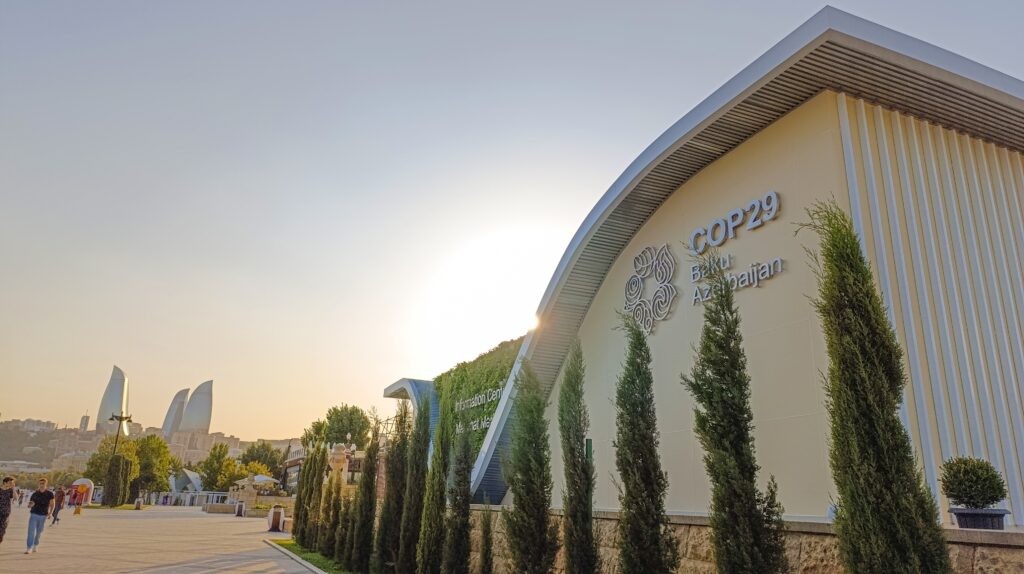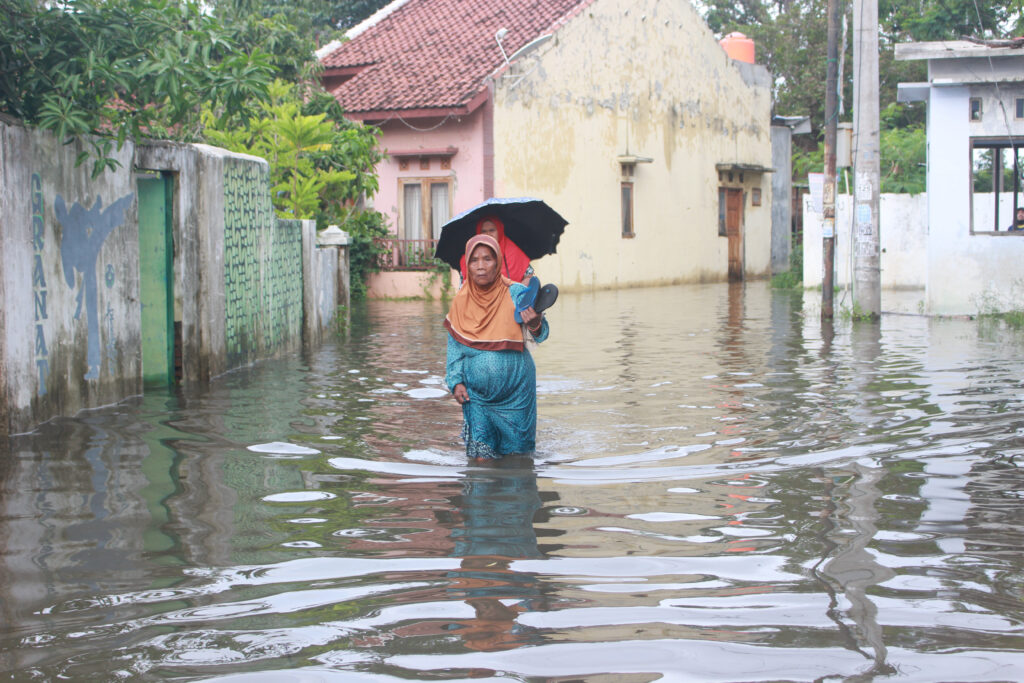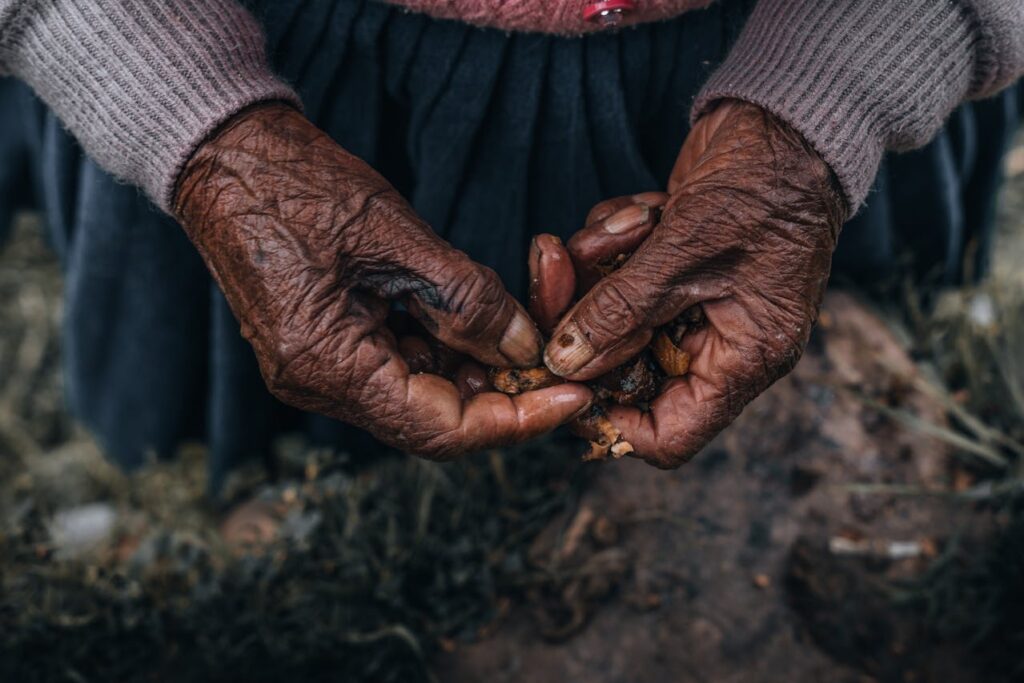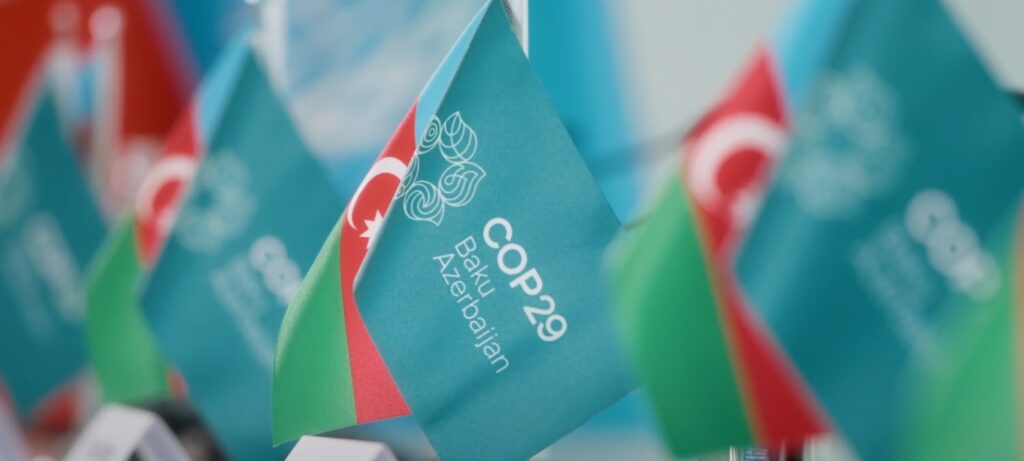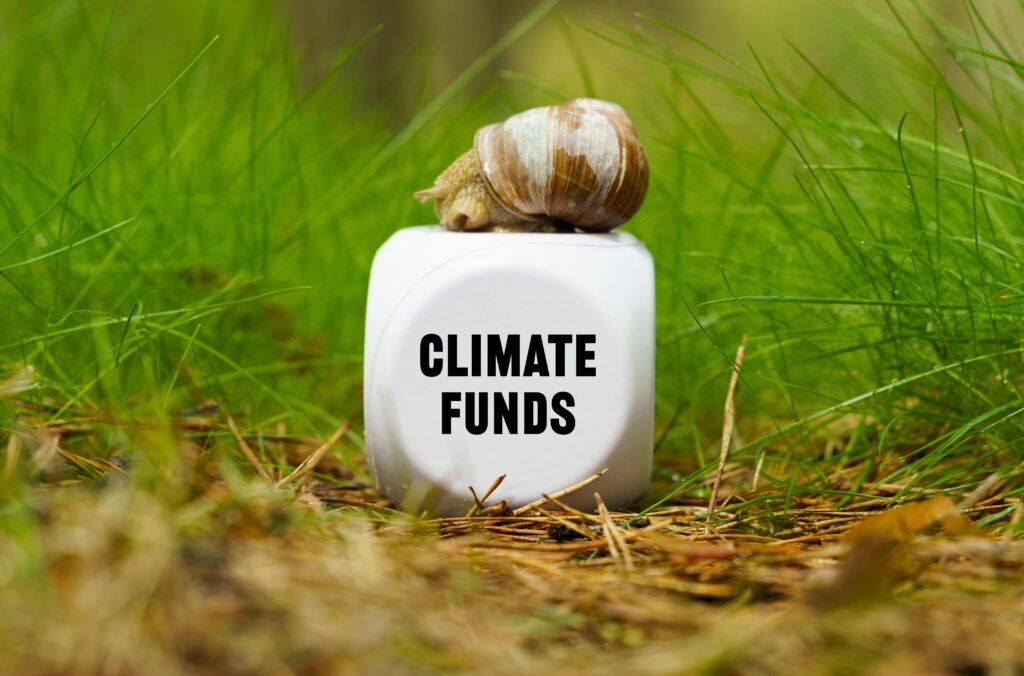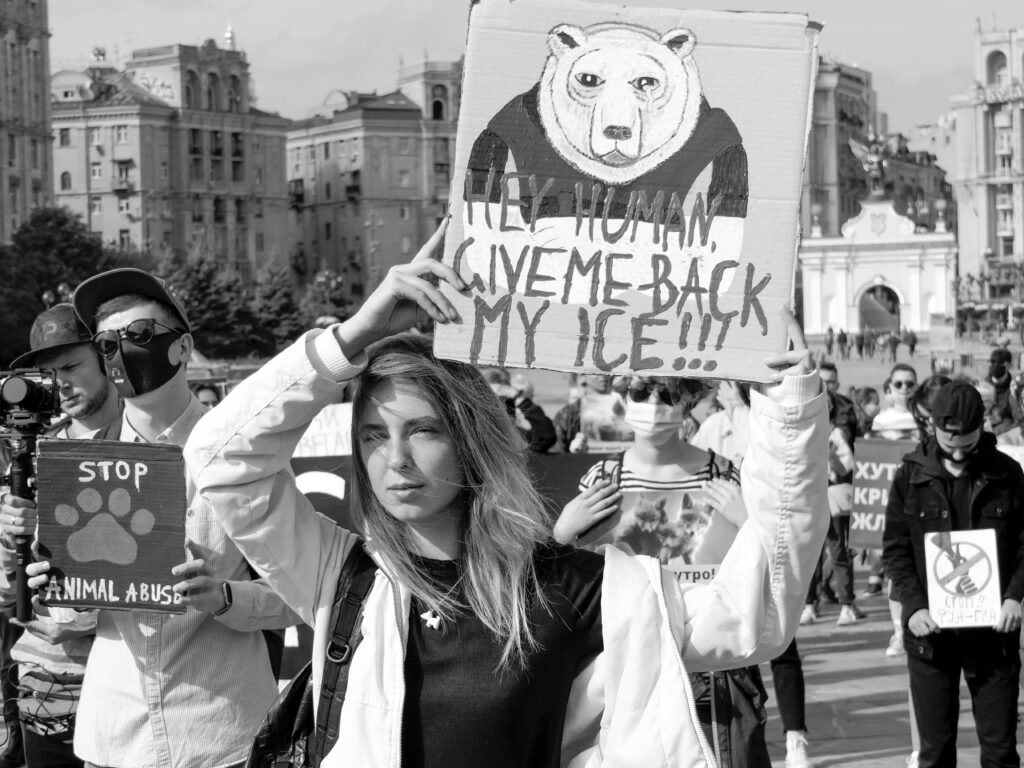“I don’t have a religion, but I still prayed for it to stop raining,” said farmer Hwayoung Yoo from Nonsan, South Korea, regarding floods last year. “Everything was flooded, and it took about a month to dry my fields and start planting again, but new crops and vegetables were damaged by diseases and insects I had never seen before,” adds Yoo, who eight years ago gave up the city life to start farming a 7,300 square-m plot of land.
“It seems that we don’t have four distinctive seasons anymore. It’s too hot in summer, and we have too much heavy rainfall,” said Jeongyeong Kim, a farmer from Sangju in North Gyeongsang Province. “We have to deal with so many uncertainties that we didn’t have in the past.”
The cases of the two South Korean farmers epitomise a problem of global proportions. According to data by the Food and Agriculture Organisation of the United Nations (FAO), of the 3.83 billion people reliant on agrifood systems for their livelihoods globally, 2.36 billion live in Asia and 940 million in Africa.
Yet, for a long time, the frustrations of farmers and food producers from climate-vulnerable countries have been brushed under the carpet. However, the developments during COP29’s dedicated Food, Agriculture and Water Day give people like Yoo and Kim hope that the problem is starting to receive more attention.
COP29 Azerbaijan: Calls For Supporting Farmers and Scaling Up Financing For Climate Action and Agrifood System Transformation
COP29’s dedicated Food, Agriculture, and Water Day put the spotlight on the importance of developing and adopting agrifood system solutions with reduced environmental impact that build resilience, foster biodiversity and enhance food security.
The day’s highlight was the launch of the joint Baku Harmoniya Climate Initiative for Farmers by the COP29 Presidency and the FAO. The initiative aims to recognise the fundamental role of farmers in climate action and facilitate the transformation of agrifood systems by offering a platform for better collaboration and exchange of know-how. The platform will help to identify gaps and opportunities for future policymaking, recognise and empower fishers, farmers and rural communities and advance the development of climate-resilient villages. Last but not least, the initiative promotes investments in agrifood system transformation from both private and public sectors and collaborations with multilateral development banks and agricultural public development banks.
The COP29 Presidency, as well as over 30 countries collectively contributing to nearly 50% of global methane emissions from organic waste, also launched the Reducing Methane from Organic Waste Declaration. It aims to declare a commitment to set methane reduction targets within future NDCs. Currently, organic waste ranks third among the largest sources of anthropogenic methane emissions, behind agriculture and fossil fuels. The declaration, featuring seven of the top 10 largest organic waste methane emitters, is a crucial step in the global mission to tackle methane emissions as part of the Global Methane Pledge.
Furthermore, the Alliance of Champions for Food Systems Transformation called on governments and financial institutions at COP29 Azerbaijan to prioritise climate finance for food systems. The co-chairs and founding members of the alliance, including Brazil, Norway, Sierra Leone, Cambodia and Rwanda, urged countries and companies to scale up USD 500 billion per year over the next decade to transform food systems.
Yet, the NCQG’s draft text notes that the total financial needs of developing countries’ NDCs are around USD 455-584 billion per year, with adaptation finance needs estimated at USD 215-387 billion per year by 2030.
According to the Alliance of Champions for Food Systems Transformation, despite being responsible for 60% of biodiversity loss and 90% of deforestation, food systems received just 3.4% of the total climate finance provided by developed countries in 2022. The alliance members also called on other governments to join their mission. More development on that front is likely to come by COP30, focusing on tackling hunger, supporting family farmers for sustainable farming and preventing deforestation.
Industrial Agriculture Lobbyists Flood COP29 Baku
According to a study by DeSmog and The Guardian, hundreds of industrial farming lobbyists attended COP29 2024. Nearly 40% of them travelled with national delegations, gaining privileged access to diplomatic negotiations.
The largest global food company, the biggest meat company and the second-largest pesticide company all sent delegates. Present were also representatives of companies that are major culprits in Amazon deforestation and members of lobby groups pushing against environmental action.
The study reveals that the delegates used their influence to promote false solutions for sustaining and expanding harmful farming practices, derailing progress in reducing meat and dairy production and distracting policy-makers from the genuine, climate-friendly farming alternatives needed to transform the industry.
The findings come after DeSmog also recorded a significant jump in lobbyists from big food companies attending the UN biodiversity talks at the start of November, which ended without a strong deal for nature.
According to campaigners, the domination of the big agriculture industry in the discussions at the two conferences silenced frontline communities such as smallholder farmers, Indigenous peoples, women and local food producers, who have been the ones to responsibly manage ecosystems, preserve biodiversity and sustain local food systems.
Additional Attention to Farming and Agriculture From the G20
The developments at COP29 Baku were complemented by the launch of the Task Force for a Global Alliance Against Hunger and Poverty, proposed by Brazil’s G20 presidency. The initiative focuses on establishing a global alliance to raise resources and knowledge for implementing effective public policies and social technologies for reducing hunger and poverty.
Regarding the launch of the initiative, Alberto Broch, vice president of the National Confederation of Agricultural Workers in Brazil, said: “The Global Alliance Against Hunger and Poverty has the potential to bring much-needed political attention to the critical role of family farmers in the fight against poverty, food insecurity and climate change, especially in the run-up to the COP30 in Brazil in 2025.”
However, he also stressed that the program won’t be successful without scaling up financial support.
“For the alliance to succeed, it needs to work with farmers’ organisations and ensure that more funding is made available for family farmers to promote diverse and nature-friendly farming practices, such as agroecology, which are key to ensuring food security in a changing climate.”
Climate Change’s Impact on the Food, Water and Agricultural Sectors Requires Stronger and More Urgent Action at COP29 2024
Changes in precipitation patterns, floods, droughts and heat waves affect the water and food cycles, disrupting agricultural production and resource supplies. With demand for food and water only projected to increase, the world faces the challenge of ensuring sufficient supplies in an era of unpredictable weather.
Projections show that global yields could decline by up to 30% without effective climate change adaptation efforts by 2050. However, experts also warn that the impact of climate change on crops and agricultural production would be disproportionate, depending on CO2 levels in the atmosphere, water availability and temperature. According to NASA, climate change may affect the production of maize, a 24% decline, and wheat, a 17% increase, as early as 2030 under a high greenhouse gas emissions scenario. Such differences are because some plants, like wheat and rice, benefit from higher CO2 levels. High CO2 levels for crops such as maize, millet and sorghum would mean they will benefit very little unless there is a prolonged drought. Higher temperatures in regions with higher than optimal temperatures for particular crops would decrease yields, and vice-versa. Too much or too little water would cause significant stress to the agricultural sector.
Due to the presence and variability of all those factors, it is challenging to estimate the ultimate impact on crop yields with certainty. However, what is known for sure is that the disruptions would cause price volatility and food insecurity.
However, future scenarios confirm that agricultural production in Asia will be among the most affected by the changing climate, with disruptions expected for various crops.
Farmers like Kim don’t need convincing, however. They’ve experienced the situation firsthand.
“I don’t know what to do to cope with climate change. I know I have to diversify crops and vegetables we grow to minimise the impacts of natural disasters as an individual farmer, but I believe the ultimate solution should be sought by all our society, including the government, taking necessary action,” says Kim.
According to experts, the water supply would also face significant disruptions.
“The main water-related problems we face currently include too much, too little or too polluted water. And by 2050, over 4 billion people will live in water-stressed areas,” explained Håkan Tropp, COO of the Stockholm International Water Institute and head of the OECD Water Governance Programme.
“By 2050, over 60% of the global population will live in cities, with Asia having some of the highest urbanisation rates. Besides, climate change and factors like changing precipitation patterns will significantly impact water supply. As a result, we can expect too much or too little water supply at the wrong time,” said Tropp.
While climate change threatens food production and water supply from Africa and the Americas to Europe and Asia, it will hit the poorer and more vulnerable communities the hardest. According to the World Bank, 80% of the population most at risk from crop failures and hunger from climate change are in sub-Saharan Africa, South Asia and Southeast Asia, where farming families are disproportionally poor and vulnerable. The United Nations Foundation warns that the 2 billion people already lacking access to sufficient food, including small farmers and people living in poverty, will be hit hardest.
Short-term Fixes and Innovative Long-term Agricultural Solutions Needed For Adaptation and Mitigation
The number-one solution to climate change-related disruptions to the food, agriculture and water sectors has been clear for a long time: reducing emissions. Since governments are failing on that front, with emissions continuing to increase, it is essential to focus on adaptation measures.
For example, scientists are working to find solutions to a future of warmer atmospheres and a fluctuating water supply. The answers include climate-proofing seeds able to survive and germinate during drought conditions and thrive in nutrient-depleted soil to sensors, indicating in real-time if plants are under stress.
While these solutions are promising game-changers, they should be complemented by simpler solutions with immediate impact.
One example is shifting to more sustainable farming practices with more efficient and effective water use, including switching to less-thirsty crops. Improving soil health, including increasing the carbon content to ensure better water retention and resilience to drought, is another measure that experts consider important. An added benefit to it is that the soil will be able to provide more nutrients without requiring as much chemical fertiliser.
A more responsible use of pesticides and fertilisers is also essential. Since they often come from fossil fuels and have had significant negative impacts on biodiversity, soil and water health, it is crucial for producers to come up with more sustainable and eco-friendly alternatives.
Recognising the importance of agroforestry, where trees and farmlands coexist, can ensure effective carbon sinks, avoid soil erosion and provide habitat to diverse species.
In addition, it is essential to employ as many nature-based solutions as possible. According to the World Bank, by not tilling the soil and using cover crops, for example, farmers can restore carbon and deliver 37% of the climate change mitigation necessary to meet the Paris Agreement.
Another promising measure is reducing food waste to balance growing food demand. As a countermeasure to continuous floods, Chinese authorities, for example, are trying to enhance food security by reducing food waste.
According to estimates, food production should increase between 60% and 100% by 2050 to meet the projected demand. Scientists estimate that global food consumption alone could add nearly 1°C to warming by 2100. Around 75% of the warming will originate from foods that are high sources of methane, such as ruminant meat, dairy and rice. Yet, by adopting more sustainable and efficient production and consumption practices, such as food waste reduction, healthier diets and greener farming, we can avoid over 55% of anticipated warming.
Ensuring Tomorrow’s Food and Water Requires Action Today
Scientists warn that the risks climate change poses to the food, agriculture and water sectors are threatening not only our health, livelihoods and well-being but also our peaceful coexistence as conflicts for resources will become more common.
While COP29 has put the wheels in motion to address climate change’s impacts on food, water and agriculture, it is just a small step. The bigger challenge would be overcoming the strong vested interests and turning pledges into action to protect small farmers and food producers like Kim and Yoo, who do the actual work of feeding communities while using natural resources responsibly. The scale of the challenge is massive, and, as of now, they are left to deal with it on their own.
“The biggest concern is that I’m losing hope that things will get better,” shares Kim.
“As climate change worsens, I fear I must deal with more disasters. I had never been so desperate for my entire 53-year life,” adds Yoo.
Viktor Tachev
Writer, Bulgaria
Viktor is a writer that specialises in green finance and ESG investment practices. He holds a Master's degree in financial markets and has over a decade of experience working with companies in the finance industry, along with international organisations and NGOs. Viktor is a regular contributor to several publications and comments on the likes of sustainability and renewable energy.
Viktor is a writer that specialises in green finance and ESG investment practices. He holds a Master's degree in financial markets and has over a decade of experience working with companies in the finance industry, along with international organisations and NGOs. Viktor is a regular contributor to several publications and comments on the likes of sustainability and renewable energy.



